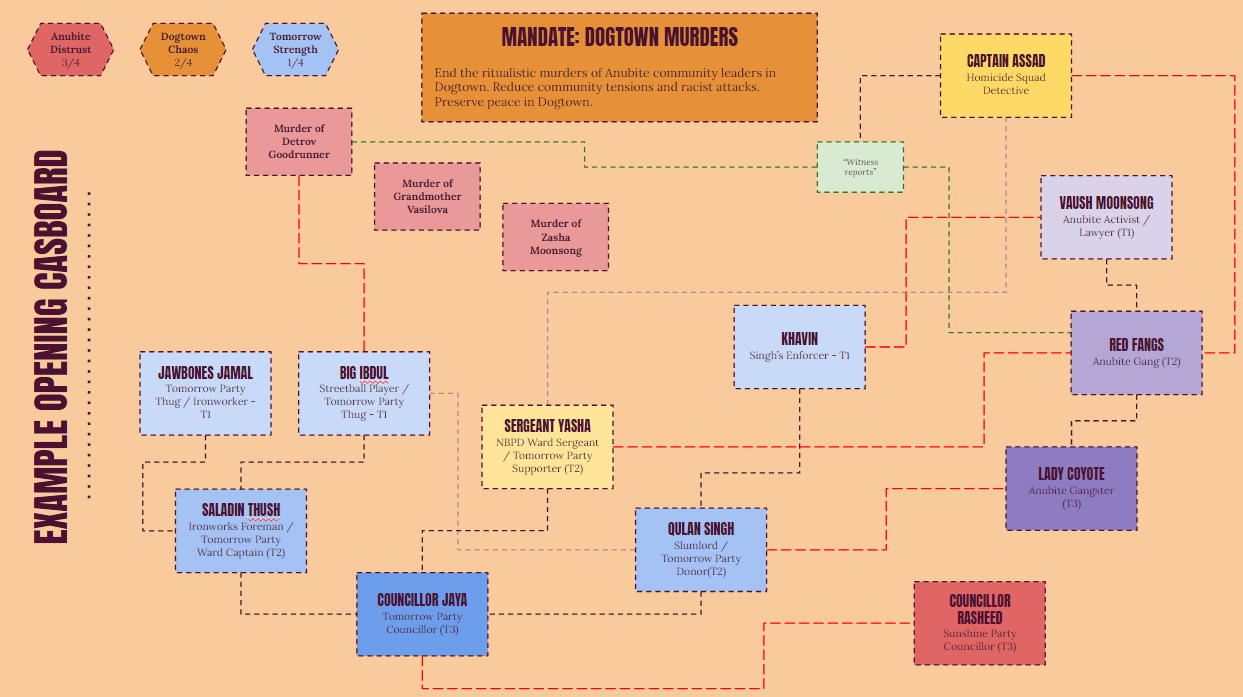Content warning: This post discusses playing as agents of a police force. In many countries around the world, police forces are primarily oppressive institutions dedicated to enforcing an authoritarian status quo.
Police and detectives are enormously common in media, but RPGs seem far more likely to lean into criminal activities and anti-social adventurers than to depict the players as police officers.
This isn't a question of morality, but one of practicality. RPGs are at their best when they let players choose their own approach to situations and solutions to problems, rather than railroading them towards obvious goals and single solutions.
A police game lends itself towards railroading - PC are either fighting criminals or solving mysteries. The former lends itself towards one simple solutions - applying force to eliminate or detain criminals. The latter relies on the GM's ability to deliver clues effectively, and the player's ability to piece those clues together. Moreover, police officers are typically part of a strict hierarchy, where they're expected to follow orders rather than make their own decisions.
I've had some success running games with an alternate framework: the police taskforce.
The Taskforce Game
There are four elements to this framework: the mandate, the case board, operations and entanglements.
In this framework, the PCs are members of a taskforce with a broad mandate to approach an issue in a specific region, city, or neighbourhood. They don't answer to the local cops - who are likely corrupt and part of the problem. Their superiors are distant, and they have wide-ranging authority to interpret their mandate and take action as they see fit. This approach places PCs in opposition to the local status quo, rather than as agents enforcing it.
The PCs will also have a case board. This serves as the combined campaign map and progress chart. Key figures are listed on the board, with low-level operators at the bottom at Tier 1 and ringleaders or powerful figures at the top on Tier 3. The question for the PCs in this game is not who committed the crime, but how they will take down the ringleaders to fulfil their mandate and stop their plans.
 |
| Opening case board |
While the PCs have badges, they don't have unlimited legal authority. They cannot simply arrest the ringleader and have them jailed for life - they need to build a case against them using their case board. The legal process is simplified for the purposes of the game. Tier 1 figures only need a single witness piece of evidence linking them to a crime, while Tier 3 figures need three pieces of evidence before they can be sent to prison.
The PCs will have to undertake operations to build the case. They pick a target figure from the caseboard, and choose an approach: either trying to flip a witness against them, or gather some sort of evidence linking the target to a crime. These operations form the basic unit of play - an operation can take a whole session, or be as simple as resolving a single room in a dungeon.
Of course, the PCs do not exist in a vaccuum. After (or even during) each operation, the PCs will suffer entanglements - actions and reactions from other factions or their superiors that they are forced to deal with. These can be randomly rolled, determined by a clock or an accumulating heat mechanism, determined by NPC decision making, or some combination of the three.
Rulesets and Procedures
The game illustrated above was run in a Forged in the Dark system - but there's no reason the same approach couldn't be used for an OSR game, an Apocalypse game, or even a 5e game run by a particularly masochistic GM.
The important thing is to incorporate procedures of play that facilitate the above elements. For the Forged in the Dark game set in Dogtown, we used the following procedures:
- Engagement rolls to cut directly to the action when undertaking operations
- Heat accumulation to determine the level of friction caused by the agents in operations.
- Entanglement rolls influenced by the Heat system to determine what would occur after operations.
The full rules deck is available here.
